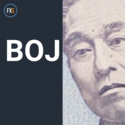Fundamental Analysis
EUR
“There was broad agreement that the overall economic situation in the Euro area had become more challenging since before the summer.”
- European Central Bank
The Euro zone's biggest economy booked a lower trade surplus in August, as exports plunged by their largest amount since the global financial crisis, in the latest sign that Germany is feeling the headwind from a slowdown in emerging markets. According to the data from the Federal Statistics Office, Germany's foreign trade, one of the components of the country's current account, generated a non-seasonally adjusted surplus of 15.3 billion euros in the reported period, up from the 25 billion euros registered in July. At the same time, country’s exports dropped 5.2% month-on month, posting the steepest fall since January 2009. August’s decline in exports followed a revised 2.2% growth in July, while economists anticipated a 0.9% decrease in the eighth month of the year. As for the import, it contracted by a monthly 3.1% to 78.2 billion euros in August.
In the meantime, the accounts of the ECB monetary policy meeting, which took place in Frankfurt on 2-3 September, revealed that that downside risks to inflation across the Euroland have intensified over the summer. However, it added that more time is needed to gauge the effect of financial market volatility and slower growth in China. At the same time, the ECB showed its willingness to increase its stimulus programmes, if needed, to address the risks of too low inflation.
USD
“The tone of these minutes increases the risk of a later liftoff.”
- JPMorgan
The number of people who filed for unemployment assistance in the US declined more-than-expected in the week ended October 3, extending a run of applications near decade lows that shows dismissals remain in check. According to the Labour Department report, unemployment claims fell by 13,000 to 263,000 in the reported week, beating market estimates of 274,000 applications. Even though claims data tends to be uneven from week to week, the number of applications has generally been declining since 2009. Nevertheless, other measures of the labour market in the US suggest some cooling in recent months, as the recent NFP figures showed that employers added 142,000 jobs in September and 136,000 in August.
At the same time, the Federal Reserve released the minutes of its most recent meeting in September, when the policymakers decided to hold off on raising the Fed Funds rate. Minutes revealed that the FOMC members are mostly worried about low inflation outlook, while they admit the US has approached the full employment situation. Despite that, the majority of them noted that they are still on track of hiking in 2015, but recent weak jobs’ report may postpone the decision to the next year.
GBP
“Although there remained a risk that emerging-market prospects might deteriorate further, there had so far been few signs of a material effect on business and consumer confidence in the advanced economies.”
- MPC Meeting Minutes
The Monetary Policy Committee of the BoE voted 8-1 to keep rates at a record-low 0.5% in October, with Ian McCafferty maintaining his call for an increase. The MPC minutes also revealed a relatively soft central bank’s outlook for inflation in the UK, suggesting that the rate hike would be postponed at least to the next year. The BoE said that cost pressures in Britain’s labour market were rising too slowly for inflation to return to its 2% target, especially given the past strength of the Sterling. However, even though, the inflation fell back to zero in August in the UK, the policymakers are confident that robust domestic growth and the fading effect of last year’s slump in oil prices would cause it to bounce back towards its projected target next year. Overall, the BoE forecasted that inflation would stay below 1% until spring 2016.
Meanwhile, The MPC made its decision amid mounting signs that British economy is starting to lose momentum after 10 consecutive quarters of solid expansion. The recent official report showed services in the UK grew at the weakest pace in more than two years, underscoring the case for keeping rates unchanged. According to the minutes, the BoE officials project the GDP to expand 0.6% in the third quarter of 2015.
CHF
“Due to the restrained economic dynamic the labour market is likely to be weakened in the coming quarters.”
- State Secretariat for Economic Affairs (SECO)
The unemployment rate in Switzerland remained almost unchanged in the ninth month of the year, the most recent official statistics revealed yesterday. Measured on a monthly basis, the jobless rate held steady at 3.2% and, thus, remained equal to the 3.2% recorded in the preceding month and was in line with analysts’ forecasts. In the same month a year ago, however, the rate was 3%. The seasonally adjusted jobless rate stepped up to 3.4% on month in September from 3.3% booked in August. This figure was also in line with economists’ expectations of 3.4%.
According to the State Secretariat for Economic Affairs, the seasonally adjusted unemployment rate has been experiencing an upward trend since spring 2015 and this tendency is believed to continue into the upcoming year. The youth jobless rate, that concerns people aged between 15 and 24 years, rose to 3.7% from 3.6%. The figure accounted for 3.5% last year. The biggest increase of unemployment was witnessed in the 25-49 age group, where the number of jobless workers rose by 900 persons, whereas the number of unemployed above the age of 50 stepped up by additional 300 persons.
JPY
“Our house view is the BOJ will ease policy in January, but the chances have risen that the BOJ will move later this month. There will also be talk about a new fiscal stimulus package.”
- Mizuho Research Institute
A rebound in capital expenditure in Japan was proved elusive, as machine orders fell at their fastest pace since 2014 in the eighth month of the year, undermining the BoJ optimism. Core machinery orders, a leading indicator of corporate capital investment, slumped 5.7% on a monthly basis in August, following a 3.6% decline in the prior month. The market consensus expected the reading to post a 3.2% gain in the reported period. The data followed the BoJ survey, which indicated a growth in business investment for the current fiscal year, despite continued uncertainty over the global economy and sluggish growth in household spending in Japan.
In the meantime, Japan posted its largest current account surplus for the month of August in eight years, as crude prices pushed down the value of oil imports and the weaker Yen boosted income from overseas investments, despite continuing trade deficits. The current account surplus stood at 1.65 trillion yen in the reported month, up sharply from 249.4 billion yen in August last year, while the median forecast of economists was for 1.2211 trillion yen. The weakened Yen also helped to attract foreign visitors to Japan, lifting the travel balance to a surplus of 78.2 billion yens.
This overview can be used only for informational purposes. Dukascopy SA is not responsible for any losses arising from any investment based on any recommendation, forecast or other information herein contained.
Recommended Content
Editors’ Picks

EUR/USD advances toward 1.1200 on renewed US Dollar weakness
EUR/USD is extending gains toward 1.1200 on Friday, finding fresh demand near 1.1150. Risk sentiment improves and weighs on the US Dollar, allowing the pair to regain traction. The Greenback also reels from the pain of the dovish Fed outlook, with Fedspeak back on tap.

Gold price advances further beyond $2,600 mark, fresh record high
Gold price (XAU/USD) gains positive traction for the second successive day on Friday and advances to a fresh record high, beyond the $2,600 mark during the early European session.

USD/JPY recovers to 143.00 area during BoJ Governor Ueda's presser
USD/JPY stages a recovery toward 143.00 in the European morning following the initial pullback seen after the BoJ's decision to maintain status quo. In the post-meeting press conference, Governor Ueda reiterated that they will adjust the degree of easing if needed.

Shiba Inu is poised for a rally as price action and on-chain metrics signal bullish momentum
Shiba Inu remains strong on Friday after breaking above a symmetrical triangle pattern on Thursday. This breakout signals bullish momentum, further bolstered by a rise in daily new transactions that suggests a potential rally in the coming days.

Bank of Japan set to keep rates on hold after July’s hike shocked markets
The Bank of Japan is expected to keep its short-term interest rate target between 0.15% and 0.25% on Friday, following the conclusion of its two-day monetary policy review. The decision is set to be announced during the early Asian session.

Moneta Markets review 2024: All you need to know
VERIFIED In this review, the FXStreet team provides an independent and thorough analysis based on direct testing and real experiences with Moneta Markets – an excellent broker for novice to intermediate forex traders who want to broaden their knowledge base.
